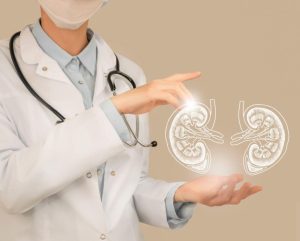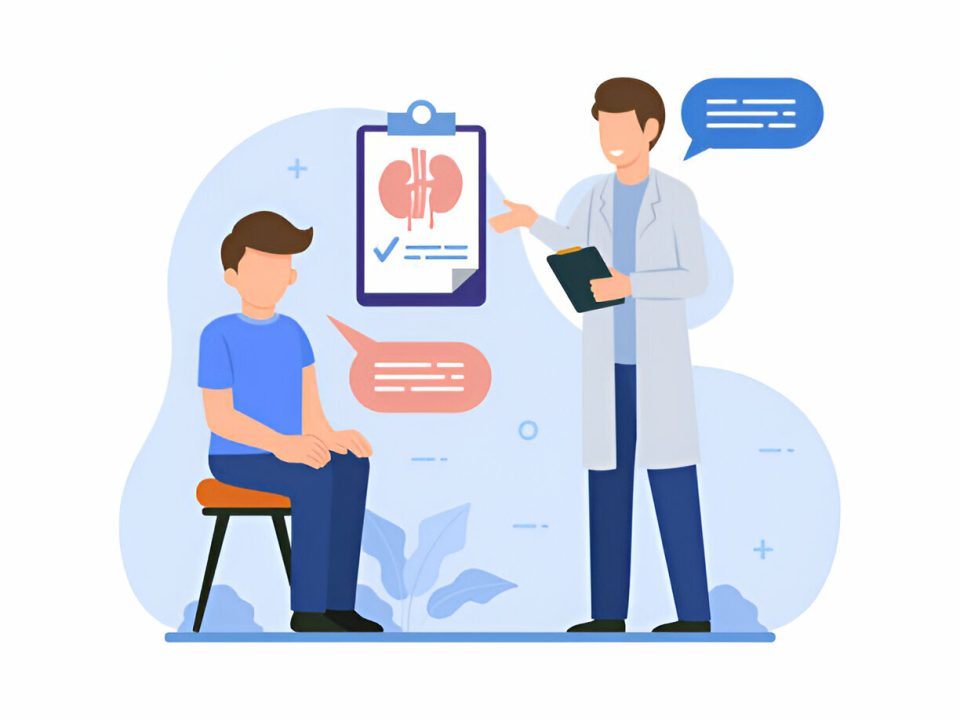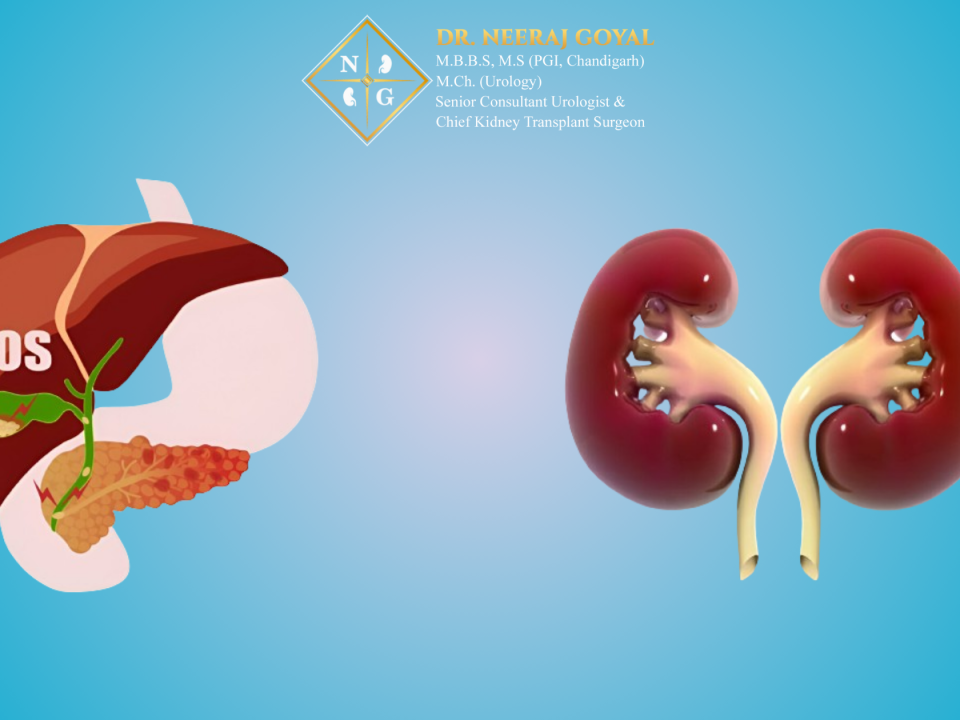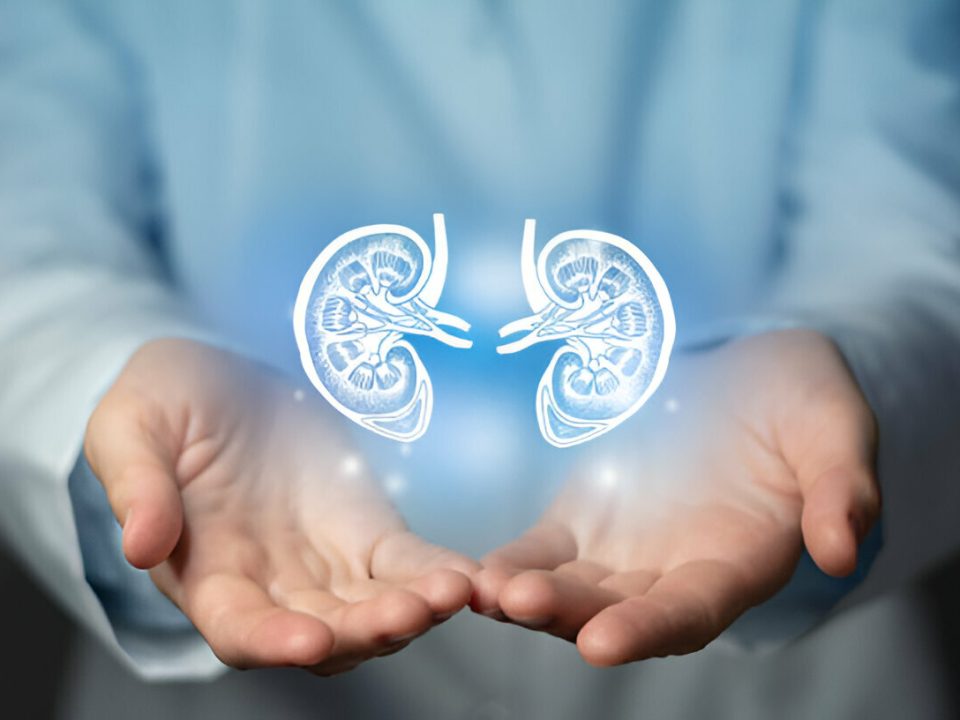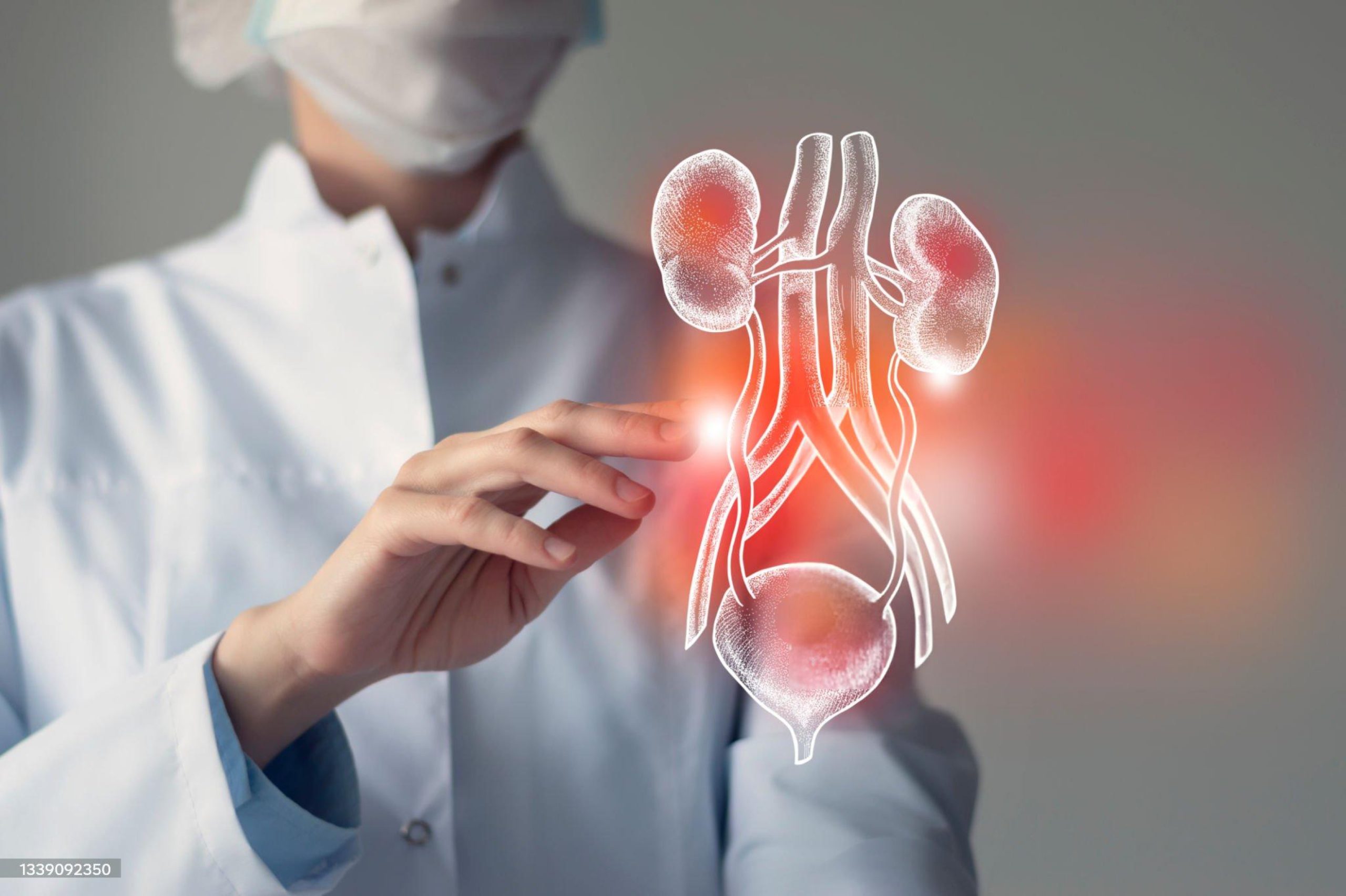
Is Kidney Infection Your Immediate Cause of Concern?
March 21, 2022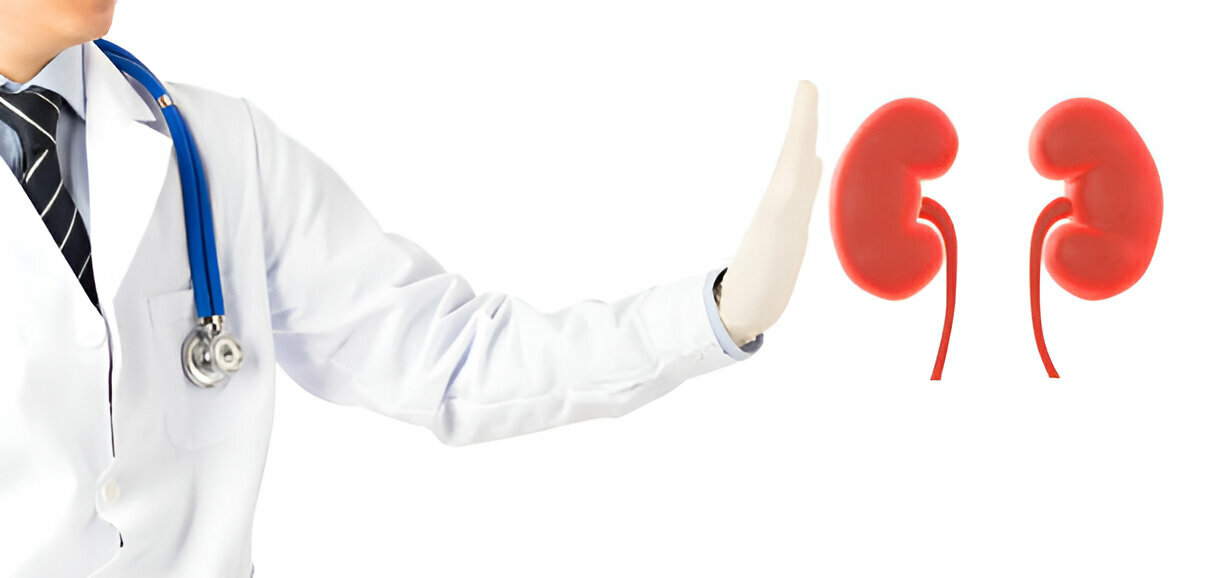
Urologist vs Nephrologist: Explaining the Distinctions and When to Consult Each Type of Specialist
May 23, 2024Introduction
Kidney stones are a common urological problem that significantly impacts a large number of people globally. These hard kidney deposits can be quite painful and uncomfortable. Understanding the causes, symptoms, and preventive measures for kidney stones is crucial for early detection and effective management.
In this comprehensive guide, we will delve into the details of kidney stones, including their causes, symptoms, prevention methods, and the role of the esteemed kidney stone doctor in Chandigarh, Dr. Neeraj Goyal.
What are Kidney Stones?
Renal calculi, or kidney stones, are solid deposits that develop in the kidneys. They are composed of various substances, such as calcium, oxalate, uric acid, and cystine. Kidney stones can vary in size, ranging from tiny grains to larger stones that can cause blockages in the urinary tract.
What Causes Kidney Stones?
Kidney stones are possible for several reasons. The most common causes include:
-
Dehydration:
Insufficient fluid intake leads to concentrated urine, which increases the risk of stone formation.
-
Dietary Factors:
Certain foods and beverages, such as high oxalate foods (spinach, rhubarb) and excessive consumption of sodium and protein, can contribute to stone formation.
-
Family History:
If you have a family history of kidney stones, your risk of developing them increases.
-
Medical Conditions:
Conditions like urinary tract infections, certain metabolic disorders, and digestive diseases can predispose individuals to kidney stone formation.
What are the Symptoms of Kidney Stones?
Depending on the size and location of the stone, kidney stone symptoms might change. Common symptoms include:
- Intense and sudden pain in the back, side, or lower abdomen, is known as renal colic.
- Urine with visible blood, which may be pink, red, or brown.
- A continuous urge to urinate or frequent urination.
- Cloudy or foul-smelling urine.
- Vomiting, nausea, and fever are all possible symptoms of an illness.
How Can Kidney Stones Be Prevented?
Preventing the formation of kidney stones involves adopting certain lifestyle modifications and dietary changes. Here are some preventive measures:
-
Hydration:
Drink an adequate amount of water throughout the day to maintain proper urine dilution.
-
Dietary Modifications:
Limit the consumption of high oxalate foods, sodium, and animal protein. Increase your consumption of whole grains, fruits, and veggies.
-
Calcium Intake:
Maintain a balanced calcium intake, as excessive calcium restriction can increase the risk of stone formation.
-
Medications:
In some cases, medications may be prescribed to prevent specific types of kidney stones from recurring.
End Your Kidney Stone Pain with Dr. Neeraj Goyal
When it comes to expert care and treatment for kidney stones in Chandigarh, Dr. Neeraj Goyal is a highly regarded name in the field of urology. With years of experience and a deep understanding of kidney stone management, Dr. Goyal has helped numerous patients overcome this condition and achieve optimal renal health. He specializes in the diagnosis, treatment, and prevention of kidney stones.
His patient-centric approach, combined with advanced medical techniques, ensures accurate diagnosis and personalized treatment plans. With a focus on patient education and preventive measures, Dr. Goyal aims to empower individuals to take control of their kidney health.
Treatment options for kidney stones may include:
-
Medications:
Depending on the type and size of the stone, medications can be prescribed to help dissolve the stones or manage symptoms such as pain and inflammation.
-
Extracorporeal Shock Wave Lithotripsy (ESWL):
This non-invasive procedure uses shock waves to break down the kidney stones into smaller pieces, making them easier to pass through the urinary tract.
-
Ureteroscopy:
A minimally invasive procedure where a thin tube with a camera is inserted into the ureter to visualize and remove the stones using specialized tools.
-
Percutaneous Nephrolithotomy (PCNL):
In cases where the stone is large or located deep within the kidney, PCNL may be recommended. This procedure involves creating a small incision in the back to access and remove the stones.
-
Lifestyle Modifications:
Along with medical interventions, Dr. Goyal emphasizes the importance of lifestyle modifications to prevent the recurrence of kidney stones. These may include dietary changes, increased fluid intake, and regular exercise.
By following Dr. Goyal’s guidance and treatment recommendations, patients can effectively manage their kidney stones and reduce the risk of future occurrences. Regular follow-up visits and ongoing monitoring of kidney health are essential to ensure long-term well-being.
Preventing the formation of kidney stones often involves making specific dietary changes to reduce the risk of stone formation. Here are some recommended dietary changes supported by scientific research and health guidelines:
-
Increase Fluid Intake
- Drink Plenty of Water: Staying well-hydrated is one of the most effective ways to prevent kidney stones. The National Institute of Diabetes and Digestive and Kidney Diseases (NIDDK) recommends drinking enough fluids to produce at least 2 liters of urine per day.
- Citrus Juices: Consuming citrus juices, such as lemonade or orange juice, can help increase citrate levels in urine, which can prevent stone formation.
-
Limit Sodium Intake
- Reduce Salt Consumption: High sodium intake can increase calcium levels in urine, promoting stone formation. The American Urological Association suggests limiting sodium intake to 2,300 mg per day or less.
-
Moderate Protein Intake
- Animal Protein: Consuming high amounts of animal protein (such as red meat, poultry, eggs, and seafood) can increase the risk of kidney stones. The Mayo Clinic recommends limiting animal protein and choosing plant-based proteins instead.
- Balance Protein Sources: Aim to balance your diet with both animal and plant-based proteins to reduce the risk.
-
Control Oxalate-Rich Foods
- Limit High-Oxalate Foods: Foods high in oxalates can contribute to calcium oxalate stones. Examples include spinach, rhubarb, nuts, and chocolate. It’s recommended to consume these foods in moderation and pair them with calcium-rich foods to help bind oxalates in the digestive tract and reduce their absorption.
-
Maintain Adequate Calcium Intake
- Dietary Calcium: Contrary to what some might think, adequate dietary calcium helps prevent kidney stones, as it binds oxalate in the intestines, preventing its absorption. Adults are generally advised to consume 1,000 to 1,200 mg of calcium per day through foods such as dairy products, leafy green vegetables, and fortified foods.
- Avoid Calcium Supplements: High-dose calcium supplements, however, can increase the risk of kidney stones and should be taken only under medical supervision.
-
Reduce Sugar and High-Fructose Corn Syrup
- Limit Sugary Drinks: Sugary beverages, especially those with high-fructose corn syrup, can increase the risk of kidney stones. The NIDDK suggests reducing the intake of sugary drinks and foods.
-
Balance Dietary Oxalates and Calcium
- Combine Foods Wisely: Consuming calcium-rich foods together with oxalate-rich foods can help prevent the formation of calcium oxalate stones. For example, having a serving of cheese with spinach can help reduce the oxalate absorption from spinach.
-
Monitor Vitamin C Intake
- Moderate Vitamin C: High doses of vitamin C supplements can increase oxalate production in the body, leading to kidney stones. It’s recommended to avoid excessive use of these supplements.
By following these dietary guidelines, individuals can significantly reduce their risk of developing kidney stones. It’s important to note that these recommendations may vary depending on the type of kidney stones one is prone to, so consulting with a healthcare provider for personalized advice is always recommended.
There are many potential complications associated with the different treatment options for kidney stones mentioned:
Kidney stones can be treated using a variety of methods, each with its potential complications. Here’s a detailed overview of the treatment options and their associated risks:
-
Hydration and Dietary Changes
- Complications:
-
- Note: This is the least invasive method and primarily involves increasing fluid intake and making dietary changes to prevent stone formation.
- Effectiveness: For larger stones or certain types of stones, hydration and diet alone may not be sufficient to prevent recurrence.
-
Medications
- Alpha Blockers: These are used to relax the muscles in the ureter, helping to pass stones more easily.
-
- Complications:
-
-
- Side Effects: Dizziness, fatigue, and low blood pressure.
- Allopurinol: Used for uric acid stones.
- Complications:
-
-
-
-
- Side Effects: Rash, gastrointestinal issues, and potential liver damage.
-
- Potassium Citrate: Used to prevent calcium stones.
- Complications:
- Side Effects: Gastrointestinal discomfort and hyperkalemia (high potassium levels).
- Complications:
-
-
Extracorporeal Shock Wave Lithotripsy (ESWL)
- Procedure: Uses shock waves to break stones into smaller pieces that can be passed through the urinary tract.
-
- Complications:
-
-
- Pain: During or after the procedure as stone fragments pass.
- Haematuria: Blood in the urine.
- Infection: Increased risk of urinary tract infections (UTIs).
- Bruising and Hematoma: Around the treatment area.
-
-
Ureteroscopy
- Procedure: Involves using a small scope to remove or break up stones in the ureter.
-
- Complications:
-
-
- Ureteral Injury: Risk of damaging the ureter.
- Infection: Post-procedure infections.
- Stricture Formation: Scar tissue can form, narrowing the ureter.
- Pain: During and after the procedure.
-
-
Percutaneous Nephrolithotomy (PCNL)
- Procedure: Involves making a small incision in the back to remove stones directly from the kidney.
-
- Complications:
-
-
- Bleeding: Risk of significant bleeding during and after the procedure.
- Infection: Increased risk of kidney infections.
- Injury to Surrounding Organs: Potential damage to nearby organs such as the colon or lungs.
- Prolonged Hospital Stay: Due to the invasive nature of the procedure.
-
-
Open Surgery
- Procedure: Rarely used, involves making a large incision to remove very large stones.
-
- Complications:
-
-
- Bleeding: Significant blood loss during surgery.
- Infection: High risk of post-surgical infections.
- Extended Recovery Time: Longer hospital stay and recovery period.
- Scarring: Permanent scarring from the incision.
-
-
Parathyroid Surgery
- Procedure: For stones caused by overactive parathyroid glands.
-
- Complications:
-
-
- Hypocalcaemia: Low calcium levels post-surgery.
- Infection: Risk of infection at the surgical site.
- Damage to Vocal Cords: Potential damage to nearby nerves affecting the voice.
- Hormonal Imbalance: Possible need for lifelong monitoring and treatment.
-
Conclusion
Kidney stones can lead to significant discomfort and complications if not treated. Understanding the causes, symptoms, and preventive measures can help individuals take proactive steps to manage this condition. If you are experiencing symptoms or have a history of kidney stones, it’s important to consult with a kidney stone doctor in Chandigarh, such as Dr. Neeraj Goyal, who can provide expert guidance and comprehensive treatment options.
